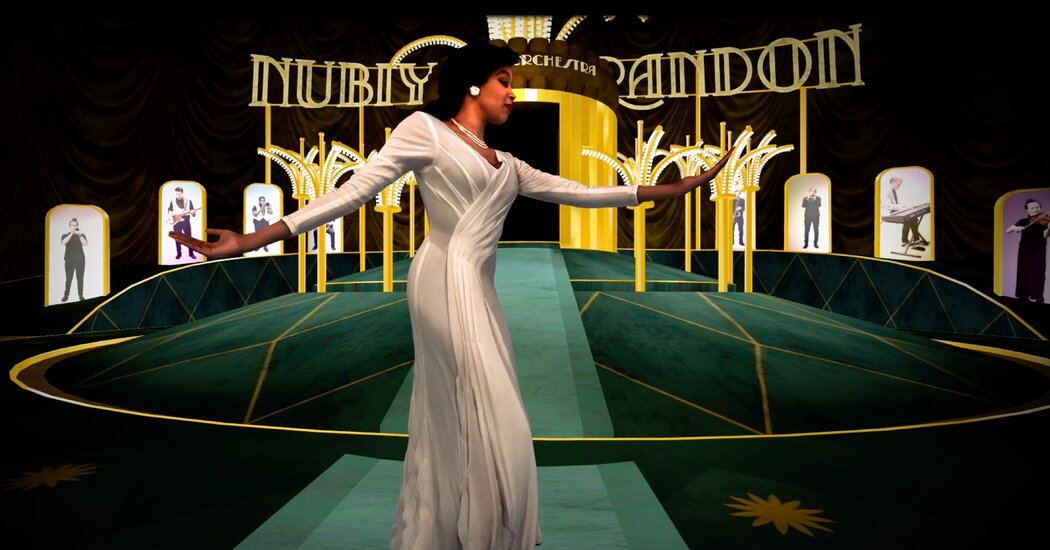
Augmented Reality Theater Takes a Bow. In Your Kitchen. – The New York Times
When the pandemic shut down British performing venues in March 2020, Coffey accelerated plans to turn “All Kinds of Limbo” into an at-home experience. The retooled version can be watched via A.R. on a mobile device, via a V.R. headset, or on a regular computer. Brandon’s performance stays the same, but, depending on the device used, the experience feels subtly different.
To summon some of theater’s shared intimacy, it’s being ticketed and broadcast as live, although the show is recorded. Other people attending virtually are represented by blades of moving white light and, by playing with the settings, you can move around the space and see the action from different angles.
It’s a short piece, but “All Kinds of Limbo” does feel like the glimmering of a new art form: somewhere between music video, video game and live cabaret show.
Over the last few years, Britain’s theater scene has become a test bed for similar experiments. Last spring, the Royal Shakespeare Company co-produced an immersive digital piece called “Dream” that featured actors performing using motion-capture technology and was watchable via smartphone or computer. Other projects, such as shows by the Almeida theater in London and the company Dreamthinkspeak in Brighton, England, require participants to turn up in person and get equipped with VR headsets.
Francesca Panetta, a V.R. producer and artist who was recently appointed as the alternate realities curator at the Sheffield DocFest film festival, said in a video interview that practitioners from audio, gaming, theater, TV and other art forms were collaborating as never before. “Many different people are trying to explore this space and work out what it really is,” she said. “No one is quite sure.”
One of the most keenly awaited partnerships is between the immersive theater troupe Punchdrunk, which pioneered live site-specific shows such as “Sleep No More” and “The Masque of the Red Death” in the mid-2000s, and the tech firm Niantic, best-known for the wildly successful A.R. game Pokémon Go.
This content was originally published here.


